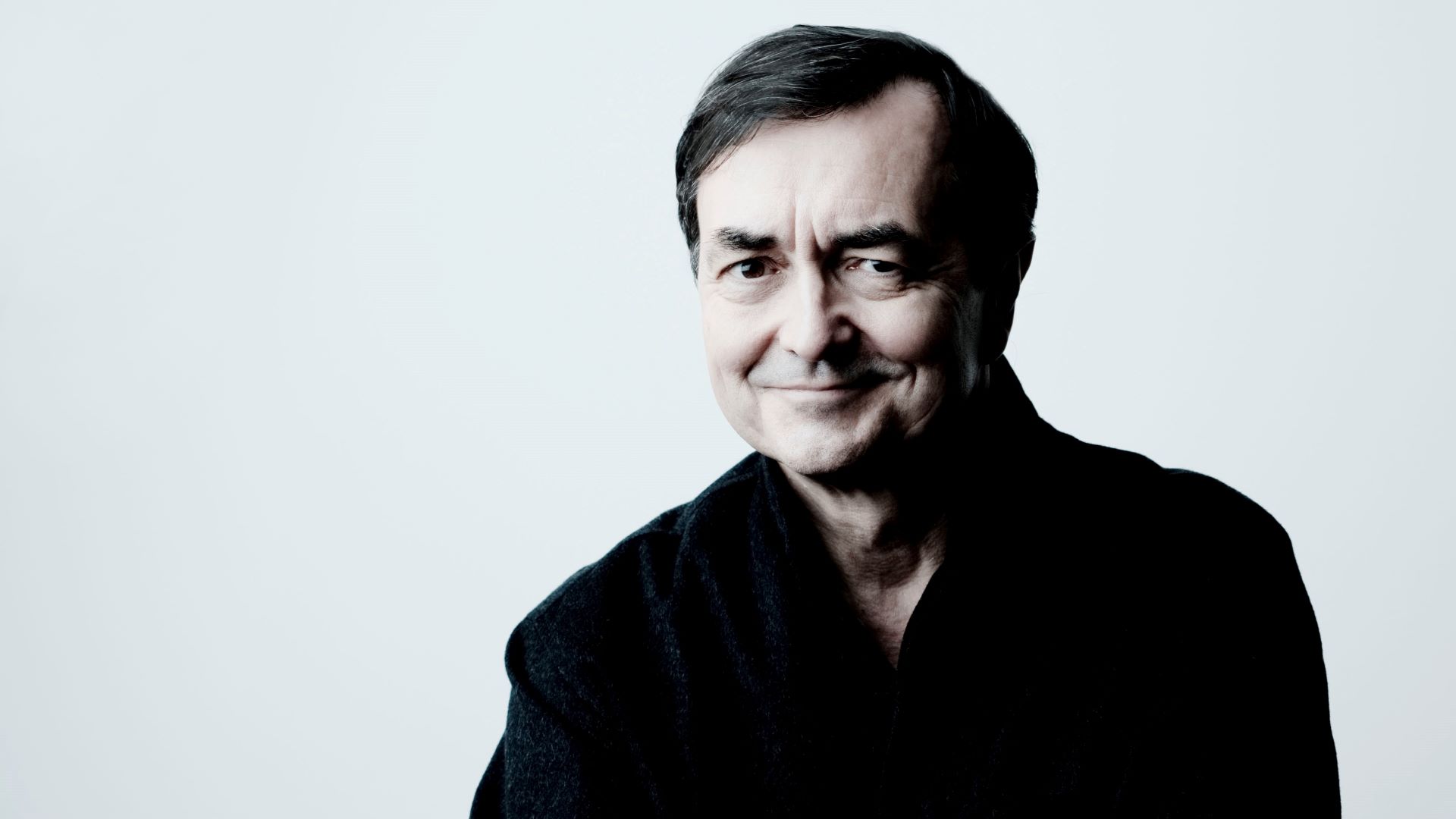Antonín Dvořák composed his Eighth Symphony on the occasion of his election to the Bohemian Academy of Science, Literature and Arts in 1889. The symphony earned more academic acclaim the following year when Dvořák conducted it in England after receiving an honorary doctorate from the University of Cambridge. Despite its academic beginnings, the symphony is loose and natural, one of the composer’s most delightful works.
Susanna Mälkki
Chief Conductor of the Helsinki Philharmonic Orchestra since 2016 and Principal Guest Conductor of the Los Angeles Philharmonic since 2017, Susanna Mälkki is a regular guest with the world’s most illustrious orchestras and at such opera houses as La Scala, the New York Metropolitan and the Vienna State Opera. From 2006 to 2013 she was Artistic Director of the Ensemble Intercontemporain in Paris on the invitation of Pierre Boulez and has conducted the premieres of works by many of the greatest contemporary composers. Beginning her career as a cellist and winning the Turku Cello Competition in 1994, she spent three years as principal cello in the Gothenburg Symphony Orchestra. Susanna Mälkki is a Chevalier of the Légion d’honneur in France, a Fellow of the Royal Academy of Music in London and a member of the Kungliga Musikaliska Akademien in Stockholm.
www.susannamalkki.com
Pierre-Laurent Aimard
Widely acclaimed as a key figure in the music of our time, Pierre-Laurent Aimard (b. 1957) has had close collaborations with many leading composers. Of the second Piano Concerto by Arnold Schönberg he performed with the Berlin Philharmonic Orchestra in 2011 he said:
“The Schönberg concerto is a very odd work. It’s the true dodecaphonic Schönberg. In its musical inspiration, it’s very Viennese, as the waltz in the first movement demonstrates. It’s very expressive, sombre and tragic, as the slow third movement shows. And it’s also perhaps very ironic, and very varied in terms of character, as in the fourth movement. But the second movement, a ‘scherzo fantastique’, is the shortest, and the one that possibly contains the best of himself. So in a huge variety of unexpected contrasts, there are menacing, overcast moments that lead to sudden huge explosions. This sort of anxious fragmentation reveals the Schönberg of the great Expressionist period.”
Karol Szymanowski: Concert Overture, Op. 12
The Concert Overture of 1905/1913 was the first work for orchestra to be composed by Karol Szymanowski (1882–1937), later known as the father of Polish Modernism. Whereas his early works still swore by the name of Chopin, this Overture is blatantly German in style and makes a deep bow to the tone poem Don Juan by Richard Strauss. His fellow countrymen, more concerned with establishing a national Polish identity and a successor to Chopin, were not impressed, and shortly before the Concert Overture’s premiere, Szymanowski had visions of the critics “leaving the hall with curses on their blue-stained lips”.
Despite its objective title, the Concert Overture is based on a poem by Szymanowski’s friend Tadeusz Miciński (1873–1918). “I shall lead you with the sound of horns to the land of the Aurora Borealis/and stain the sacrificial altar with blood/and recast you, the people, as demi-gods/with a wild song from the heart I will enrapture you/and give into your hands thunder – and the eagle.”
Arnold Schönberg: Piano Concerto, Op. 42
Arnold Schönberg (1874–1951) has gone down in history as the father of dodecaphony, also known as 12-tone technique, i.e. music in which each of the 12 notes in the scale is as important as all the others, unlike ‘tonal’ music anchored on a particular key. It is music that heeds a system, aims at objectivity and a sense that every note and even performance is utterly controlled. The Piano Concerto, Op. 42 of 1942 is the work of a later, mellower Schönberg. Though still dodecaphonic, it hints at a surreptitious return to a more romantic idiom emerging beneath the surface. From time to time there is even a suspicion – though very fleeting – of tonality.
Each movement bears a motto: “Life was easy / Suddenly hatred broke out / A grave situation was created / But life goes on.” The four movements are, however, performed without a break, and although they are coolly modernistic, they are nevertheless cast in the traditional moulds of a waltz, scherzo, adagio and rondo. The concerto is dedicated to the pianist and TV star Oscar Levant, a student who had asked his teacher, Schönberg, to write him a piece for piano.
Antonín Dvořák: Symphony No. 8 in G Major
Antonín Dvořák (1841–1904) comes closest to his authentic Bohemian style in his Symphony No. 8 of 1889. Not a trace remains of his early admiration for the German style of Brahms, and he wrote it at the height of summer in an idyllic country village north of Prague. In between composing he took long walks and entered into village life, and transferred the sounds of the birds and nature, and country dances almost as such to his symphony. “My head is so full of ideas,” he said. The symphony seems to radiate a positive, carefree message even when it takes a turn into a minor key. The first movement in fact begins in a minor key, but soon switches to the major with birdsong motifs and dances. Major and minor charmingly alternate in the pastoral Adagio landscape, and the bittersweet waltz of the Scherzo has become one of Dvořák’s most popular orchestral numbers. Rafael Kubelik the conductor said of the finale: “Gentlemen, in Bohemia the trumpets never call to battle – they always call to the dance!” And indeed, this symphony ends when the revels are at their height.

